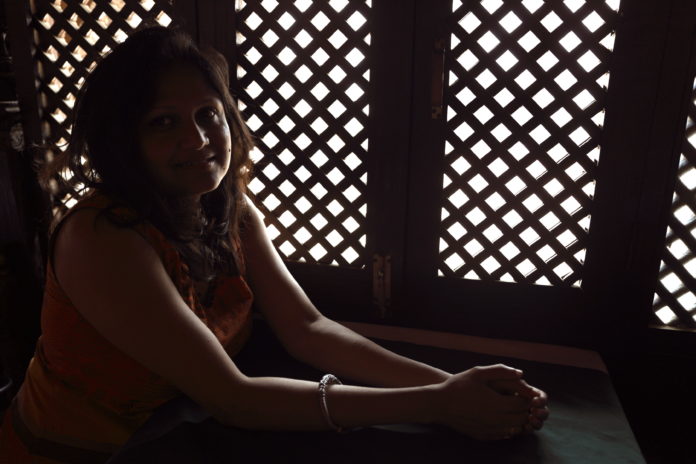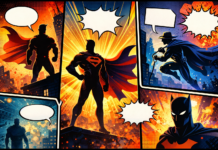Exclusive interview with Leesa Gazi – Filmmaker
Leesa Gazi is a British Bangladeshi writer, actor, filmmaker and Joint Artistic Director of a London based arts company, Komola Collective. She was the script-writer and performer of ‘Six Seasons’ and ‘A Golden Age’ at the Southbank Centre. She worked as a script interpreter for the 2012 Globe festival on ‘The Tempest. She was the cultural coordinator and a voice artist for Akram Khan’s Olivier Award-winning production ‘Desh’; and for ‘Chotto Desh’. Her play ‘Daughter of the Forest’ produced by Komola Collective completed its tour in 2016. Gazi’s new play Aleya Twist is a Bengali Adaptation of a British Classic Oliver Twist produced by Komola Collective in partnership with British Council Bangladesh. A group of underprivileged girls performed in the play along with professional actors. She has written, directed and produced several CVE (Counter Violence Extremism) short films for a UK based Counter-Extremism think tank in 2017 and 2019. Her first novel, ‘Rourob’, was published in 2010.
In 2010, Gazi met with 21 Birangona women in Bangladesh after which she started collecting their accounts to document their stories and from there, working with Komola Collective, a theatrical piece emerged. The play ‘Birangona: Women of War’ interwove film footage by the individual Birangona women. Leesa worked as the concept developer, co-writer, and performer of the theatre production, which was nominated for The Offie Award in 2014. It completed the UK & the Bangladesh tour in 2014.
Since 2010, Leesa has met and worked with more than eighty survivors of mass rape and violence across Bangladesh. She has been working intimately with many of them. They took her into their homes and villages, to share their lives and experiences as women. To safeguard their stories as a permanent record, Leesa completed her debut documentary feature ‘Rising Silence’ in 2018. ‘Rising Silence’ sheds light on the lives of rape survivors in the aftermath of the Liberation War of Bangladesh. The film won the Best Documentary Award at the Dhaka International Film Festival in January 2019 and is 2019 Moondance Winner in the feature documentary category. It also won the Asian Media Award for Best Investigation 2019 in the UK. Recently Rising Silence has won Award Of Merit 2020 with Special Mention by The Accolade Competition. Currently, she is working on her feature film Barir Naam Shahana A House Called Shahana.
Since 2017, Leesa has started working with Global Survivors Network, Sema, established by Nobel Laureate Dr Denis Mukegwege’s Foundation. Two of Bangladesh’s survivors, Anoara Begum and Jabeda Khatun added their powerful voices with fellow survivors to an international call for global reparations scheme to address the consequences of rape as a weapon of war. Their participation was made possible by the effort of Leesa Gazi. Through SEMA, she has come to know survivors from many other conflicts. She is now working with them on the Collective Memory Group at SEMA that was set up in November 2018. They are trying to establish a collective memory engagement and implementation of ideas related to an (online) museum where testimonies, art and other pieces of expression will be displayed as an exhibition, a book or a documentary.
Twitter: @LeesaGazi , https://www.risingsilence.co.uk/
Komola Collective Website Link: https://www.komola.co.uk/
NY Glam: How long have you been making films and videos?
Since 2008.
NY Glam: What film was your directorial debut?
Rising Silence.
NY Glam: What is your recent film about?
Rising Silence documents the lives of Bangladeshi women in the aftermath of the Liberation War of Bangladesh who, among hundreds of thousands of others, suffered brutal sexual violence. That conflict remains one of the first recorded cases of rape used as a weapon of war in the twentieth century. They are the Birangona women, and this was the honourific granted to them. Birangona means Brave woman.
How women have dealt with the emotional trauma of sexual violence and social stigma can be seen in Rising Silence. While the film aspires to amplify a voice of rape survivors, it is not about rape. It is about the strength of women who have picked themselves up after facing gruesome physical and emotional abuse. It is about their will to survive in the face of rejection and stigma for the ‘sin’ of having been raped, and about their fighting spirit as they witness their children and grandchildren face ruthless discrimination. The women in the film give their accounts of the horrific acts of cruelty, violence and humiliation and their personal battle to stand up against it.
NY Glam: How did you go about casting for the film?
Rising Silence is a documentary film so casting was not required. However, while I was doing research work for this film, I travelled to different parts of Bangladesh, met and worked with more than 80 survivors of mass rape and torture. I have been working intimately with many of them. They took me into their homes and villages, beyond history and politics, to share their lives and experiences as women. I was then found myself drawn into close relationships with nine women, each very different from the other, in terms of their socio-economic background, age, religion and language but all sharing one collective experience: that of being Birangona. The stories of these nine women featured in the film reveals the depth and variety of experiences of sexual violence in conflict. It shows that violence against these women had been indiscriminate, and it could have been anyone.
NY Glam: What was the most important lesson you had to learn that has had a positive effect on your film? How did that lesson happen?
During my research work, one particular incident made me realise how I should approach this film and how important it is for the women to feel that I accept them, treat them with respect; that I am not dissociating myself from them. I went to a remote village in the north-west corner of Bangladesh to meet the three sisters of our film for the first time who, during the war, were kept in the same rape camp along with 22 other women. We had a videographer with us. I was sitting in front of them, and they were sitting together. We started talking and suddenly Amina Apa, one of the sisters, asked me quite abruptly, why I am not sitting next to them? She said, “Are you ashamed to sit with us?” That’s when I realised their experience of people ostracising them or at best watching and asking them from a distance. It was vital for them for us to be together, to acknowledge and learn about each other as women. They asked for intimacy and sharing rather than testimony. This was one of the biggest lessons I learned that had a significant impact on the making of the film.
I began this journey to make a film about some of the extraordinary Birangona women I was fortunate to meet. At the end of the journey, I realised that their sharing of their life stories and how they had tried to self-rehabilitate has shown me how to find myself in the process and what I am capable of as a woman. Their stories have given me a sense of humanity, a sense of pride which I have never experienced before. The human capacity to endure and thrive is innate. We don’t know our full potential in terms of strength, resilience, compassion and our power to love until we are tested. Their experiences are living proof of that.
They accepted us without judgement and with an unconditional love that came so naturally to them. These incredible women remain defiant, and the dignity they have shown is honourable. By living, they overcome and grow beyond the monsters of war and daily prejudice with extraordinary strength and the most profound expression of love, which will remain a life lesson for me.
NY Glam: Tell us a bit about the other films you’ve made and your other projects.
Rising Silence is my debut film.
NY Glam: What role have film festivals played in your life so far?
As a member of the audience, film festivals are portals to diverse perspectives, thoughts, landscapes, languages, and altogether different worlds to mine. They have exposed stories that I would never have experienced otherwise. They are exciting, fascinating and worth visiting.
As a new independent filmmaker, film festivals are great places to showcase your work. But it dispiriting when you realise you can’t afford to apply for submission to some of the big-name festivals. And even if you can manage to send it to one or two of the big ones, there’s no telling if your film is seen or left abandoned; either because no one knows you or you don’t have connections with the festival, or you don’t have a famous producer or production house backing your film. However, when they do showcase small independent films by unknowns, it is always inspiring and encouraging.
NY Glam: Is it harder to get started or to keep going? What was the particular thing that you had to conquer to do either?
It’s always hard to get started. If I can start, half of my worries are gone. However, starting is an issue.
I need to conquer my procrastination and self-created obstacles. I often say to my annoyed self ‘I will start it first thing in the morning’. But that morning does not appear very often.
NY Glam: How has your style evolved?
I wouldn’t say my style has fully evolved as yet. As I am working on my next film, which will be a fiction, I am focusing on how I would like it to look and feel. Some scenes I am absolutely sure about from a directorial point of view. I can even see some of them vividly. But with some other scenes, I am still looking.
As far as my debut documentary film, Rising Silence is concerned, I did not approach it from a journalistic point of view. There were times when things happened, emotionally, we fell apart, but we did not feel it was right to film it. I remember the moment while we were filming the three sisters’ story (Amina Begum, Maleka Begum & Mukhlesa Begum). They were, in fact, four sisters who were kept imprisoned in a rape camp for months during the war. Right after the war ended the youngest sister, Budhi died of internal haemorrhage. The rest of the three sisters buried her themselves. While we were filming, they wished to have a milad ceremony in honour of her memories. Budhi died in 1972, and the three sisters could finally arrange a milad for her in 2015, where family members and neighbours joined them in prayers. It took 43 years for them to arrange this. At the end of the prayers, Maleka Apa couldn’t bear the pain. She fainted. We rushed towards her to comfort her, fetch her water. We immediately stopped filming. Our DOP Shahadat Hossain and camera person Matt Kowalczuk did not wait for me to say ‘cut’. They knew what to do and stopped filming. We have been very clear about how to go about it. We never compromised the dignity of these incredible women. Their safety, integrity and their decision to choose marked our territory to intervene or explore. We never crossed that line.
NY Glam: What has been your personal key to success?
I think success is a relative term. My key to success has been my compassion, motivation and perseverance to bring any particular story to light that deals with issues I profoundly care about to spark social change.
NY Glam: What are you thinking about doing next?
I am working on a theatrical project and also working on directing a feature film which I intended to shoot at the end of this year. But it looks a bit uncertain right now as we are living under lockdown. I am currently co-writing the screenplay for it which is going through its final draft.
Views: 693






